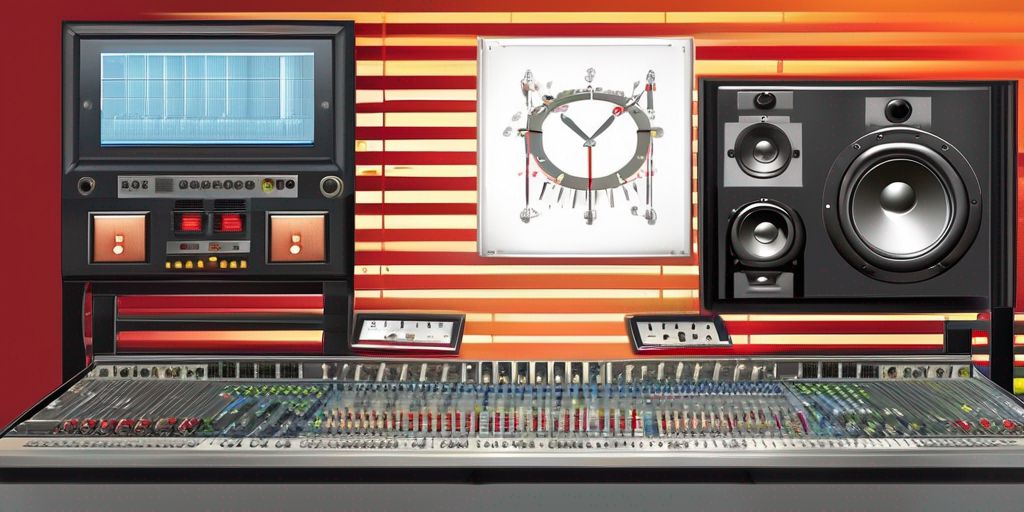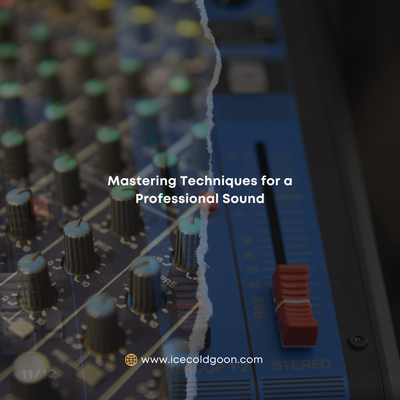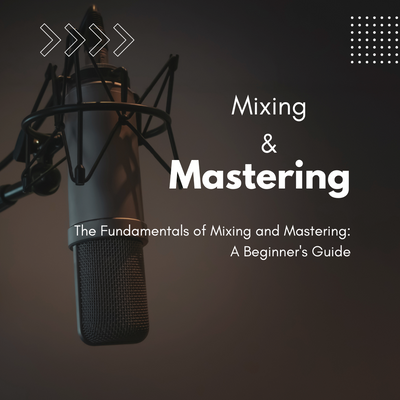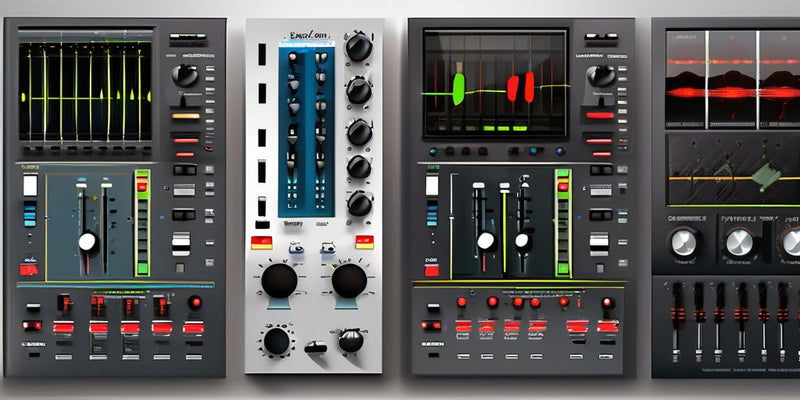Free Mixing Engineer
Overview
What is a Mixing Engineer?
A mixing engineer is an audio engineering professional specializing in combining and balancing multiple audio tracks to create a cohesive and high-quality sound. They play a crucial role in the post-production process of music, ensuring that each element of the audio, such as vocals, instruments, and effects, is adequately mixed and blended. Mixing engineers use their technical expertise and artistic skills to enhance audio quality and create a polished and professional sound.
Role of a Mixing Engineer
A mixing engineer plays a crucial role in the music production process. They are responsible for combining individual audio tracks into a cohesive and balanced final mix. The role of a mixing engineer involves using various techniques and tools to enhance the audio quality, balance different audio elements, and create a cohesive sound. They work closely with artists, producers, and other audio professionals to bring out the best in a recording. A skilled mixing engineer can significantly impact a music production's quality and success.
Skills Required for a Mixing Engineer
To excel as a mixing engineer, technical proficiency in audio software and hardware is essential. A deep understanding of audio signal flow and digital audio workstations (DAWs) is necessary to manipulate and shape sound effectively. Strong listening skills and an ear for detail are crucial in identifying and resolving audio issues. Communication and collaboration skills are also necessary for working closely with artists and producers to achieve their vision. Finally, a creative mindset and the ability to think outside the box are valuable assets when experimenting with different techniques and approaches to achieve the desired sonic result.
Importance of a Mixing Engineer
Enhancing Audio Quality
One of the primary responsibilities of a mixing engineer is to enhance the audio quality of a recording. This involves using various techniques and tools to ensure the sound is clean, clear, and professional. The mixing engineer may adjust the levels of different audio elements, such as vocals, instruments, and effects, to achieve a balanced and polished sound. They may also apply EQ (equalization) to shape the frequency response of individual tracks and use compression to control dynamics and create a more cohesive sound. By improving the audio quality, a skilled mixing engineer can bring out the best in a recording and make it sound professional and engaging.
Balancing Audio Elements
Balancing audio elements is a crucial task for a mixing engineer. It involves adjusting the volume levels of different tracks to ensure that each element in the mix is heard clearly and contributes to the overall sound. This requires a keen ear and an understanding of how different instruments and vocals interact. By carefully balancing the audio elements, a mixing engineer can create a well-balanced mix where each instrument and vocal sit appropriately, resulting in a cohesive and professional sound.
Creating a Cohesive Sound
Creating a cohesive sound is an essential aspect of music production. It involves ensuring that a track's audio elements work harmoniously to create a unified and balanced sound. A skilled mixing engineer plays a crucial role in achieving this goal. They use panning, reverb and delay to make sense of space and depth in the mix. Additionally, they use automation to control the volume and dynamics of different elements, ensuring that each part of the song is heard clearly and contributes to the overall sonic experience. By focusing on creating a cohesive sound, a mixing engineer helps bring out a song's full potential and make it sound professional and polished.
Process of Mixing
Setting Up the Mixing Environment
Once the audio files are ready, the mixing engineer starts setting up the mixing environment. This involves configuring the digital audio workstation (DAW) with the necessary plugins and tools for processing the audio. The engineer ensures that the studio monitors are calibrated for accurate sound reproduction. Additionally, they optimize the listening position and acoustics of the room to minimize any unwanted reflections or resonances. By carefully preparing the mixing environment, the engineer creates an ideal setup for making critical decisions during the mixing process.
Importance of Gain Staging
Gain staging is a crucial step in the mixing process. It involves setting the proper levels for each audio element to ensure optimal sound quality and prevent distortion. By carefully adjusting the gain of individual tracks, a mixing engineer can achieve a well-balanced mix with ample headroom. This allows further processing, such as EQ and compression, to be applied effectively. Proper gain staging also helps maintain the dynamic range of the audio, ensuring that softer elements are still audible while louder elements remain clear and impactful. Overall, gain staging is an essential technique that maximizes the potential of a mix and contributes to the overall quality of the final product.
EQ and Compression Techniques
EQ and compression are two essential tools in the arsenal of a mixing engineer. EQ stands for equalization and adjusts the frequency balance of audio signals. It allows the mixing engineer to enhance or attenuate specific frequencies, thereby shaping the sound of individual instruments or vocals. Compression, on the other hand, helps to control the dynamic range of audio signals. It reduces the difference between the loudest and softest parts of a recording, making the overall sound more balanced and controlled. Using these techniques effectively, a mixing engineer can bring out the best in each mix element and create a professional and polished sound.
Conclusion
The Role of a Mixing Engineer in Music Production
A mixing engineer plays a crucial role in the music production process. They are responsible for combining individual audio tracks to create a balanced and polished final mix. By using their technical expertise and creative skills, mixing engineers can enhance the overall sound quality of a recording. They ensure that each instrument and vocal is balanced correctly and that the different audio elements work together harmoniously. Additionally, mixing engineers use various EQ and compression techniques to shape the sound and give it depth and clarity. Without the expertise of a skilled mixing engineer, music production may lack the professional touch and may not reach its full potential.
The Impact of a Skilled Mixing Engineer
A skilled mixing engineer significantly impacts the final outcome of a music production. They possess the technical expertise and artistic sensibility to enhance the audio quality, balance the different audio elements, and create a cohesive sound. Using various EQ and compression techniques, they can shape the individual tracks and ensure they blend seamlessly. The result is a polished, professional-sounding mix that elevates the listening experience. A skilled mixing engineer is an invaluable asset to any music production team, as their contributions can make or break the success of a song or album.
Continued Importance of Mixing Engineers
The continued importance of Mixing Engineers in the music industry cannot be overstated. As technology advances and more artists access recording equipment, the need for skilled professionals who can bring out the best in a mix becomes even more crucial. Mixing Engineers play a vital role in ensuring that the audio quality is top-notch, the various elements of a song are correctly balanced, and the overall sound is cohesive. They are experts in setting up the mixing environment, using techniques such as gain staging, EQ, and compression to enhance the audio. Without the expertise of Mixing Engineers, the final product may lack the polish and professionalism that can make a song stand out. Therefore, the role of Mixing Engineers remains essential in music production, and their impact on the final outcome of a song cannot be underestimated.











